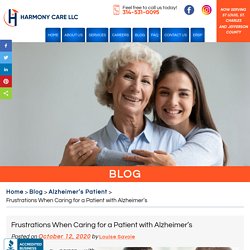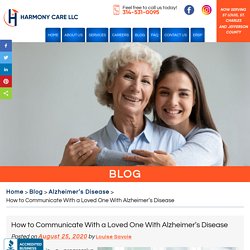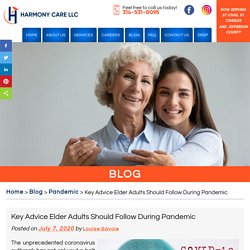

How Quality Caregiving Changes Senior’s Lives. As a family member, it is not easy seeing our senior parents or loved ones having a hard time keeping up with their daily routines.

The once-simple tasks at home may already be difficult for them to accomplish. Without any assistance, this can cause them to feel lonely, isolated, and depressed. Reconsidering Senior Care Options: Advantages of Hiring Caregivers. There’s nothing more frustrating than knowing that your senior loved ones are losing their physical capabilities.

But as much as you want to take good care of them personally, taking care of a senior loved one is not an easy task, especially when you’re also trying to juggle your personal and professional life on top of your caregiving duties. Keep in mind that in delivering adequate care, time and effort is essential. Thus, this is the time for you to reconsider senior care options. One way you can ensure that your loved ones would achieve overall wellness is by entrusting their health to professional caregivers and by availing of home care in St.
Louis, Missouri. COVID-19 Vaccine: Plans for Distribution. We’ve all been waiting for an effective vaccine to help fend off COVID-19, and finally, here it is.

The Centers for Disease Control and Prevention’s Advisory Committee on Immunization Practices (ACIP) and the U.S. FDA authorized the distribution of Pfizer’s COVID-19 mRNA vaccine for emergency use last December 2020. The first phase of vaccination will prioritize healthcare workers, essential workers, assisted living facilities, older adults, and immunocompromised patients before moving distribution on to the general public. We at are committed to timely and transparent communication regarding our COVID-19 responses. This includes the availability of a vaccine for our patients and employees. As a dedicated provider of Home Care in St. We are grateful that the CDC has suggested prioritizing vaccinations for courageous front liners and vulnerable patients. Ways to Lower Risk of Bladder Cancer. Bladder cancer is the sixth most common cancer diagnosis in the U.S., with an estimated 80, 500 cases according to a 2019 survey.

This makes up 4.6% of all cancer diagnoses (greater than the global average). While bladder cancer is not 100% preventable, there are a few ways you can lower your risk, which — a professional provider of In-home Care Services in Missouri — will be sharing with you in this article. Quit SmokingSmoking is believed to be the culprit to half of all bladder cancer cases. (This includes any type of smoking e.g., cigarettes, cigars, or pipes.) Be Careful of the Hues You Choose. Does the color red make you feel as hostile as a bull?

Does the color pink make you feel bubbly and playful? There have been many studies conducted on the effects of colors on the brain and they’ve all come out with similar findings: color can affect a person’s mood, feelings, and emotions. It was Pablo Picasso who said it best, “Colors, like features, follow the changes of the emotions.” Frustrations When Caring for a Patient with Alzheimer’s. Caring for a person with Alzheimer’s can be a challenging experience as you can witness how their memories and skills slowly decline as the disease progresses.

It can be an emotional process for both the personal care provider and their patients. A person with Alzheimer’s can become agitated by several triggers, such as finding once-simple tasks difficult. As a provider of in-home care services in Missouri, we often turn to the following tips in order to limit challenges and ease frustration: Schedule wisely Have a daily routine with flexibility for spontaneous activities for particularly difficult days. Tasks, such as bathing and medical appointments, are easier when the person is most alert and refreshed.Involve the person Allow them to do tasks independently, such as dressing themselves.
Elder Care: Starting the Conversation About Home Care. As we get older, we may require several medications and assistance from others to maintain our health and perform daily living activities.

When it becomes evident that your aging parents or a family member require assistance at home, it may be time to seek in-home care services in Missouri. However, it can be difficult to broach the subject as it can make your elderly loved one feel like they are losing their independence. With this in mind, we will share helpful tips for starting the conversation about home care: Frame the discussion with sensitivity When starting the conversation about home care, do so with sensitivity and respect. Take into account how your loved one may react to the discussion and avoid one-sided questions or comments.Be truthful and open-minded At the end of the day, considering home care in St.
How to Communicate With a Loved One With Alzheimer’s Disease. Alzheimer’s is a progressive, irreversible brain disorder characterized by dementia symptoms.

A person with Alzheimer’s experiences mild memory loss during its early stages and gradually lose the cognitive ability. Alzheimer’s disease is the most common cause of dementia, accounting for 60-80% of dementia cases. Consequently, the disease gradually diminishes an individual’s ability to communicate which can lead to further complications. Key Advice Elder Adults Should Follow During Pandemic. The unprecedented coronavirus outbreak has not only put a halt and damper on many of our plans but also engenders health anxieties to many people around the world.

While the coronavirus infects no particular age group, according to the World Health Organization (WHO), elder adults and those with underlying medical conditions are found to be the most vulnerable.